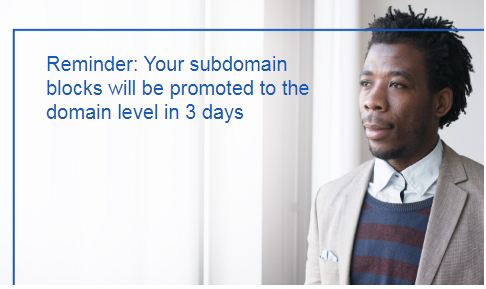CV/Resume Writing Skills:
One of the most important parts of your job search anywhere in the world is your CV or resume. You will need a resume if you want to be considered yourself for a job. You have two main goals when you are making a resume.
Highlight your experience in your resume, qualifications, and skills to show that you are fit the recruiter’s requirements, and to have a resume so compelling that they invite you for the most important stage of hiring through an interview.
A Canadian style of resume might have a different format compared to what you are used to in your country. Canadian resumes are targeted. They are tailored to fit the requirements listed in the job advertisements.
Use relevant keywords to the job/industry. Most employers use applicant tracking systems or recruiting software to filter candidate resumes as per their requirements.
Avoid such kind of information that can be grounds for discrimination. It should not include information like age, gender (male/female), religion, nationality, marital status, or race.
Seven important steps to a Canadian-style resume:
Create a Master Resume
This is a catch-all file that has all your job experiences, qualifications, education, certificates, and training in chronological order. Having a master file will make it easier for you to sift through your relevant skills and qualifications every time you are applying. Just “Save As” each time you make a new CV/ resume version. In Canada, you have to customize your resume for each job advertisement. Don’t send a general resume to all your job applications.
Start with your Contact Details
The most required information is Your name, your Address, your Telephone Number/s, and your Email Address. You can choose to add your website address or social media accounts like Facebook, Twitter, Whatsapp, and LinkedIn (if you have). This is placed at the top of your resume page. Never include a picture of yourself unless the recruiter requested one.
Make your Professional Summary
This is composed of three to five sentences that summarize your strengths and core competencies. It answers the question that “Who am I?” The first statement should pertain to your job title and years of experience. For example: “Management with eight years of experience in Managerial sector”. You can add a statement that highlights your most top skills such as: “with proven skills in lead generation and communicating with people/customers from varied cultural backgrounds”. This is also where you may mention your technical skills if they are related to the requirements of the job advertisement, like “Knowledge in Management and computer programming and languages”.
Your Job Experience
This is the most important step of your CV/resume. There will be needed to go back to the job advertisement. Read carefully and analyze properly the job description, qualifications and responsibilities. Find and Underline or highlight essential responsibilities and skills that are required. Take note down of the relevant keywords which were used in the advertisement. Use these practices when describing your job experience in your CV/resume.
Use a chronological format. Start with your last position going back to your earliest job. Limit your list to jobs you’ve had in the last 10 years. The line should be included:
Your job title
Name of company
Location
Dates and service. (month and year).
For Example Intern Architect, Atelier School of Architecture (Barcelona, Spain, etc) January 2019 – April 2020
Use achievement or oriented statements.
Explain your job experience or responsibilities in bullet or points. Recruiters skim, not read so short descriptions would be so easy to understand. Follow this format: Action – benefit or result. As much as possible, indicate the amount when you are talking about sales, goals, or targets.
Use the keywords used in the job advertisement. Remember to mirror the very important job responsibilities mentioned in the advertisement in this section.
Volunteer experience. You can include your volunteer experience with the label it so especially if the responsibilities and skills you learned from the position relevant to the job advertisement.
Education:
Make a list of your degrees in a separate section. You can also include the most relevant seminars and training or certificates. It should highlight your degree, school/educational institution and year graduated in reverse chronological order (your recent relevant degree you finished first). Also mention if you received special awards and honors from many institutions.
Uses Some do’s and don’ts
Use of Dos:
Make it short and easy. Your CV/resume should be one or two pages only. It should be clearly readable and easy to understand. Use a most simple format and professional-looking fonts like Arial, Calibri, and Times New Roman at 11-12 points, etc.
Be consistent. Use the single or same format and design elements all throughout the document. This will make it look clean, clear, and orderly. It will also be clean and easier to understand for another one.
Use white space. Use proper spacing. Observe bigger spaces between sections to differentiate them.
Use the common software. Recruiters usually showing the document format they prefer. The most common files are .doc or .docx or pdf. Keep in your mind to follow this to ensure that the recruiter (or their system) will be able to open and read your CV/resume.
Use of Don’ts:
Don’t write “References available upon request” at the footer of your resume. The interviewer will demand the list when needed.
No use of graphics. Don’t put tables, graphs, pictures, or photos. These can be decline by applicant tracking systems.
The English language is required. Don’t emphasize your English language proficiency by indicating your IELTS or CLB scores. Recruiters will have not used them.
Outdated skills. Don’t write down “Knowledge about the Microsoft Word” or “Typing skills” etc. It is assumed that everyone knows that how to use basic word processing software and type on a computer system.
Proofreading:
Proofreading is a very important part before submitting your resume. You should read this several times or with the help of a friend or relatives. Spelling and grammar mistakes are the very common recruiter pet peeves. Imagine if a single word misspelled ruins your chance at your dream job? That would be heartbreaking for you! So keep in your mind that you check out each detail and be as meticulous as you can.
 |
| sample |






